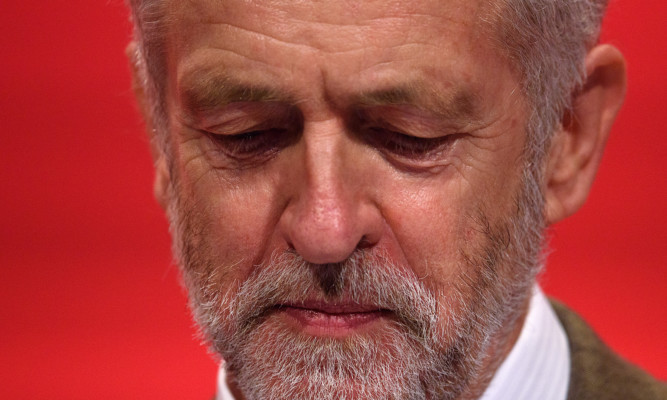Jeremy Corbyn has signalled he is ready for a showdown with Labour MPs over the country’s nuclear deterrent by stressing his landslide leadership win gave a “mandate” for his views on disarmament.
The Labour leader used his first keynote conference speech to publicly restate his view that spending £100 billion on replacing the Trident weapons system is misguided.
Mr Corbyn said the policy on Trident would be developed through a review, but the reference to the scale of his victory in the leadership contest will be seen as a sign that he thinks the members and supporters who voted for him support his position.
He won the leadership race this month with more than 250,000 votes and a 60% share, while closest rival Andy Burnham secured the backing of just 19%.
Mr Corbyn said: “There is one thing I want to make my own position on absolutely clear, and I believe I have a mandate from my election on it.
“I don’t believe that £100 billion spent on a new generation of nuclear weapons taking up a quarter of our defence budget is the right way forward.
“I believe Britain should honour our obligations under the non-proliferation treaty and lead in making progress on international nuclear disarmament.
“But in developing our policy through the review we must make sure that all the jobs and skills of everyone in every aspect of the defence industry are fully protected and fully utilised so that we gain from this, we don’t lose from this.”
Shadow defence secretary Maria Eagle, who is in favour of retaining the UK’s nuclear deterrent, will lead a review on delivering “strong, modern effective protection for the people of Britain”, he said.
Mr Corbyn’s stance was greeted with applause in the hall, but reporters watching the speech in Brighton noted that the majority of members of the shadow cabinet did not join in as the leader issued his defiant comments about Trident.
On the eve of his most high-profile speech, Mr Corbyn sent a message to a Campaign for Nuclear Disarmament rally at the Brighton gathering saying he was as “committed as ever” to the cause.
But he suffered a blow to his authority at the gathering as the conference rejected having a debate on the future of Trident, meaning the issue will not be voted on by delegates.
